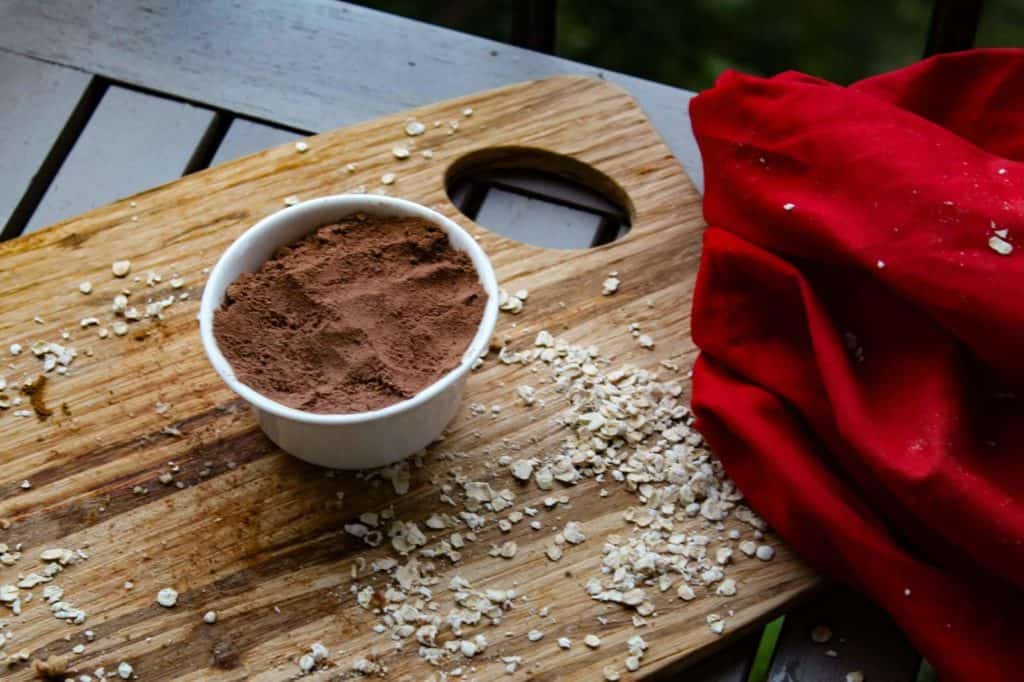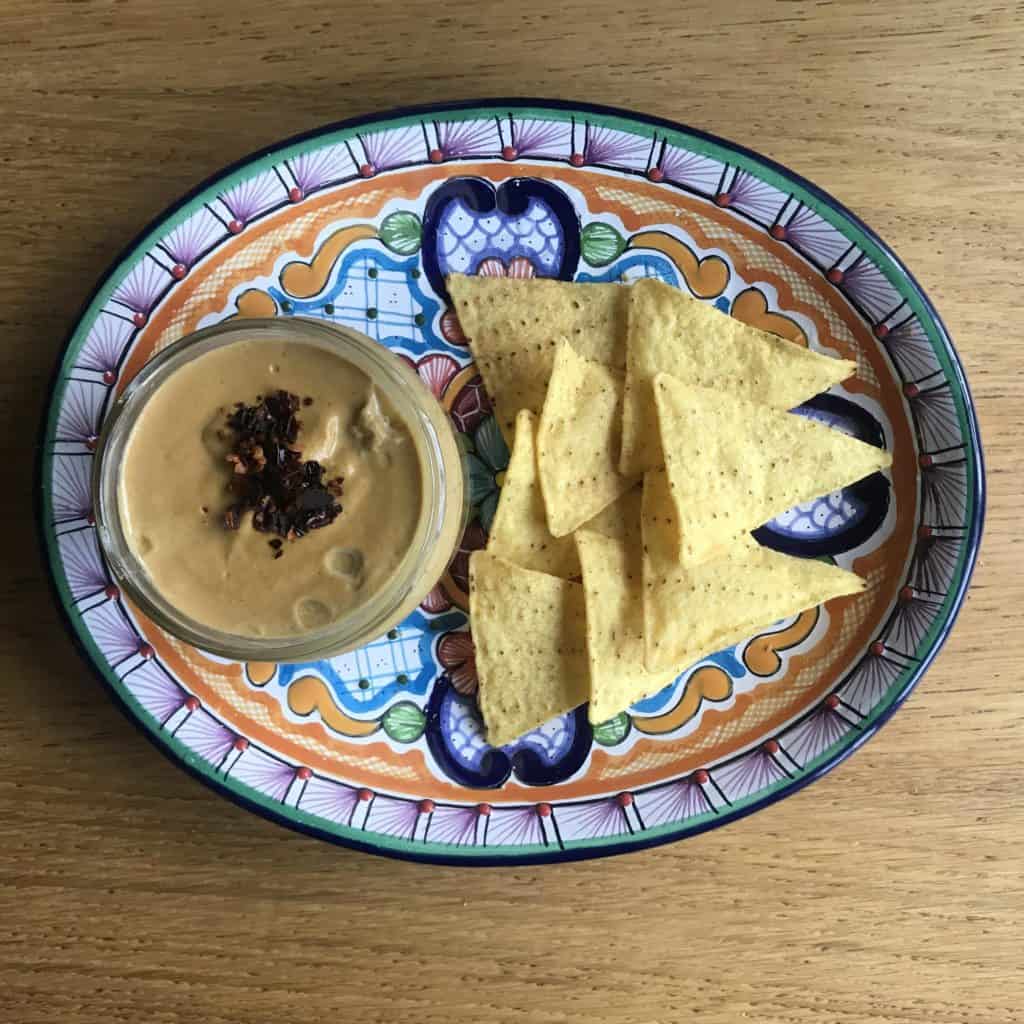Oh yes, the tabu topic: Where do vegans get their protein? and perhaps more important: What are good vegan protein sources?
Fear not, we will address this tabu question in this post and I am even going to give you a summary table with protein sources and a spreadsheet with nutrition facts for vegan food.
To start with, let me tell you that unless you are trying to gain muscle, you are very likely to be meeting your protein requirements. Yes, even on a vegan diet. As pointed out in this Healthline article, you require 0.8 grams of protein per kilogram of body weight or 0.36 grams of protein per pound.
This amounts to:
- 56 grams per day for the average sedentary man.
- 46 grams per day for the average sedentary woman.
Some examples of why you actually meet your protein requirements: one can of beans alone has around 17g of protein. 250ml (one cup) of soy milk has around 7.5g. 1/3 cup of almonds has around 10g of protein. You see my point now :D.
Now, if you are trying to build muscle and you want to hit the 100g or 150g per day. Things get a little bit more tricky for everyone not only for people on a vegan diet.
Moving to our favorite protein sources, raw cacao powder is one of our favorite ways to add protein to a smoothie without using protein powder, which I try to limit to one scoop a day.

How much protein does cacao powder have for every 100g?
A whopping 28g of protein. So, yes, that’s why one of my favorite smoothies includes a lot of cacao powder, which is a delicious way that almost feels like a dessert, to add protein to your diet! But eh! yeah, I know that you are thinking: OK, but we should be sustainable and get our protein from other places as well, so stay tuned, because that’s what the rest of the article is about.
Vegan (plant-based) protein sources
Vegan protein sources table (chart)
| Food | Protein | Fat | Carbs. | Sugar | Fiber | Kcal | Processed |
| Beans | 8.52 | 0.44 | 24 | 0.32 | 8.5 | 131 | No |
| Hemp seeds hulled | 31.56 | 48.75 | 8.67 | 1.5 | 4 | 553 | No |
| Pumpkin seeds | 30.23 | 49.05 | 10.71 | 1.4 | 6 | 559 | No |
| Almonds | 21.25 | 49.93 | 21.55 | 4.63 | 12.5 | 579 | No |
| Peanuts | 25.8 | 49.24 | 16.13 | 4.72 | 8.5 | 587 | No |
| Tofu (firm) | 9.04 | 4.17 | 2.85 | 0.6 | 0.9 | 78 | Yes |
| Black bean pasta (Explore cuisine) | 45.3 | 5.3 | 14.3 | 5.6 | 19.6 | 325 | Yes |
| Vital wheat gluten | 75.16 | 1.85 | 13.79 | 0 | 0.6 | 370 | Yes |
Notes:
- I gather a list with foods that have very high on protein with the exception of beans/tofu as I consider them very useful for protein intake, tofu because it is very low in calories, and beans because they are a source of complex carbs and fiber that are very good for your health. This will give you an idea of what is in the foods that have the most protein!
- Most come from the USDA 2016 spreadsheet
- Nex part gives you a better idea of what to cook with these sources as well and how to compliment them and how to get to those 100g or 150g per day!
- About complete proteins: is a protein that contains all the 9 amino acids that the body cannot produce. A lot of people believe that they should be focusing on either combining non-complete proteins or eating complete proteins, but this is just a myth. To read more about this, have a look at this article by the Huffington Post.
Comprehensive vegan nutrition list
I have done my best to remove all animal products from the USDA spreadsheet. Download it from this link.
Raw vegan protein sources
- Legumes (soaked in water, 7g+ for every 100g).
- Nuts (20g+ depending on the nut, for every 100g).
- Seeds (30g for pumpkin seeds, 30g for hemp seeds for every 100g).
- Oats (17g of protein for every 100g).
- Cooked edamame (11g for every 100g).
- Other veggies can be used to complement. Look at this article for more information.
Seitan
Friends who are not allergic to gluten, please give seitan a chance! If you make your own, it is super delicious and quite healthy. Take for example our Mexican Vegan Steak recipe. Seitan has 20-25g of protein per 100g depending on how it was made and it is very low on fat and carbohydrates. If you want to read more, go to this Healthline article.

Pulses
I am really drooling just to think about a delicious curry with chickpeas or lentils! and adding beans as a side to my tofu scramble, yes, it makes my heart, beat as I am Mexican :). The protein varies, but for cooked beans, it is about 8g for every 100g.

Seeds
Uh oh, maybe this is unexpected? Yeeees seeds have quite a lot of protein. Have you tried pumpkin seeds, for example? they pack 30g for every 100g! that’s quite a lot, and they have less fat than nuts. What about hemp seeds? they have 30g for every 100g. Also, they are generally way cheaper than nuts, and they tend to be more environmentally friendly than nuts! (they usually require less water to be produced).

Tofu
Tofu is produced from soybeans. It is almost tasteless, but it has around 10g of protein for every 100g. My favorite way to consume tofu is by making a tofu scramble out of it!

Nuts
I have to admit that I love nuts, they are one of my favorite ways to add protein to my diet. But I keep them as a “treat” because they require a lot of water to be produced in comparison with the other sources and they have a lot of calories. Tienen aproximadamente 22g for every 100g.
Protein powders
Starting with protein powders: let me tell you something, there’s more to life than plain pea protein :). Have you tried hemp protein, for example? or rice protein? what about Vivo Life protein? One of my favorite ways to consume it is in a nice cream oats bowl.

Nutritional yeast
Yees! nutritional yeast has 51g of protein for every 100g. The downside is that you should not eat much or you might experience side effects as pointed out in this article from Healthline. My favorite way to eat is by adding one teaspoon to soups or making vegan queso dips, like this one.

Beans pasta, edamame pasta, soybeans pasta
Yes, these pastas are very high in protein and have very little carbs for those trying to cut on carbs!

Nutrition facts for 100 g of black beans pasta (Explore Cuisine brand)
- Protein: 45.3 g
- Fat: 5.3 g
- Carbohydrates: 14.3 g
- Of which sugar: 5.6 g
- Fiber: 19.6 g
As you can see these pasta are very nutritious! They are processed food, but I think that since the have a single ingredient (beans, edamame or soy) they are very healthy.
Peanut flour, sesame flour
Have you tried peanut flour? or sesame flour? They are perfect for a high-protein bread or cookies, or just adding them to your lattes. like the nutty turmeric latte. Both peanut and sesame flour has more than 46g of protein for every 100g! That’s quite a lot! of course, these are processed foods, but still, you should consider them for occasional uses.
Conclusion
Vegans or plant-based people have tons of options when it comes down to finding protein sources 🙂
Spread the love ❤️
My intention with these articles is to make a big impact on your life and to help you make an impact on the world. I would love to hear your opinions and comments, and if you have anything that can improve them, please do share it!
If you liked this post, please leave a comment and spread the love ❤️, share in your social profiles!
Your big support helps me to grow the site and keep writing cool stuff for you 🙂

Great article! I was only eating legumes and tofu!
There’s a world out there full of protein sources for vegan people 🙂
Great and very thourough article! thanks for sharing!
No more eating just beans or legumes to get protein 🙂
Thanks! we are glad you liked it!
I love how this article provides so many recipes, it is the first time I heard of peanut flour! so interesting!
Thanks for sharing.
Thanks, we are glad you liked our article!
I loved the article, so many options I didn’t know!
I am going to buy peanut flour and start making some nice recipes!
We are glad you liked it!